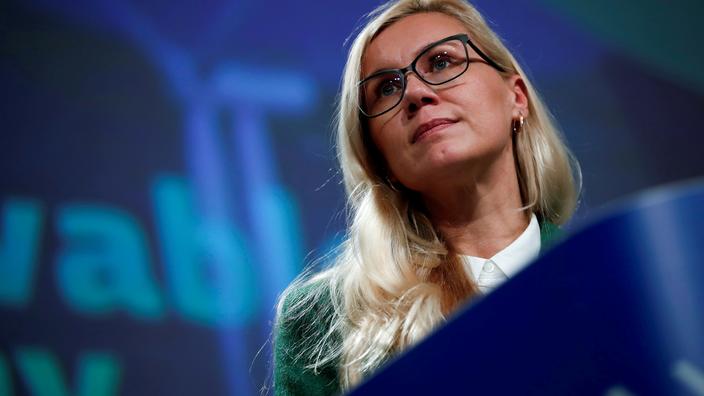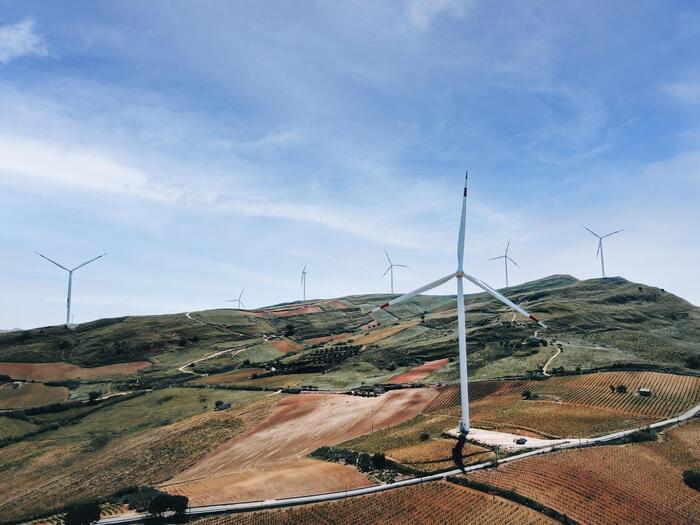Brussels unveiled on Wednesday an arsenal of temporary measures to deal with rising energy prices.
The "
toolbox
" presented by the European Commissioner for Energy, Kadri Simson, includes measures to contain the rise in prices in the short term but also "to
increase resilience in the face of future shocks
".
The Commissioner recalled that the existing legal framework allowed the EU and its Member States to "
take measures to deal with the immediate consequences on consumers and businesses
".
The measures announced are therefore part of this framework and “
must be targeted at vulnerable households and small businesses
”.
Read alsoEnergy: soaring prices are suffocating suppliers
Among the immediate measures that Member States can put in place to protect vulnerable households and businesses, the committee recommends, for example, the provision of “
emergency assistance to energy-poor consumers
”, via vouchers. (“
Energy check
”) or partial bill payments which can be “
financed by the Community emission allowance trading system
”. Authorization of “
temporary bill payment deferrals
” is also possible, says European Commissioner Kadri Simson. Another measure, which was expected, the possibility for Member States to lower VAT on energy, but only in a targeted manner for vulnerable households.
Read also Energy check: all you need to know about the aid scheme which concerns nearly 5.8 million households
The Commissioner however recalled that these measures should not "
distort the European electricity market
" and that the committee would be vigilant to ensure that governments respect the framework of the European Union.
While the surge in prices is arousing fears of speculation or manipulation on the markets, Brussels also wants to investigate possible “
anti-competitive behavior
” and asks the European Securities and Markets Authority (ESMA) to strengthen its supervision on the electricity market, as in the carbon market.
"In-depth analysis" on the marginal pricing method
In the long term, the EU first proposes a reflection on the electricity market at European level. While renewable energies, less expensive and boosted by European climate objectives, play an increasing role in supplying the electricity network and setting prices, “
other energies, including gas, remain necessary in the event of strong demand
” , according to Brussels. However, in the current functioning of the common electricity market, gas helps to fix the overall price, because all electricity producers are remunerated in the same way for what they inject into the network. If we first use the cheapest energies, we must resort to the others in the event of increased demand.The Commission considers "
effective
" system of "
marginal pricing
”because it encourages the development of renewables - the operating cost of which is low but requiring a massive investment at the outset - and considers that alternative mechanisms would not have“
had very different results
”, given the global surge in gas course.
However, "
an in-depth analysis is required
", recognizes Brussels, which asked the Agency for the Cooperation of Energy Regulators (EU gendarme bringing together national regulators) to examine "
the benefits and drawbacks
" of the current model and to submit any recommendations.
Read also Should Europe consider nuclear power as green energy?
Another measure included in the long-term “toolbox”: a regulation, to be adopted by November 2021, establishing “
cross-border regional groups
” to analyze the risks of market disruptions and advise States on the national plans to be established to avoid them. The Commission will also study the advantages of group purchases of gas stocks by states, a possibility claimed by Madrid. Brussels plans, above all, to take advantage of the revision planned for mid-December of a directive on gas to improve the rules for use and storage in Europe, in particular by concluding "
the necessary solidarity agreements
" between States.
It will also work on a voluntary system for the joint supply of gas reserves on a European scale.
Commission President Ursula von der Leyen had raised the possibility of establishing a real “
strategic reserve
” for the EU.
Renewables at the heart of the solution
"
The transition to clean energies is the best insurance against price shocks in the future
", making the EU less dependent on fossil fuels and the volatility of world prices, insists the Commission.
It calls on States to “
facilitate greater access
” to contracts for the purchase of electricity from renewable sources, in particular for small businesses, through accompanying measures or by aggregating the demand from fragmented players.
Brussels is also proposing to speed up the auctioning and permitting processes for renewable energies.
Read alsoEurope in search of a new energy model
Commissioner Simson will present the Communication and the 'Toolbox' to Members of the European Parliament on Thursday 14 October and to Energy Ministers on 18 October.
European leaders are then due to discuss energy prices at the next European Council on 21 and 22 October.








